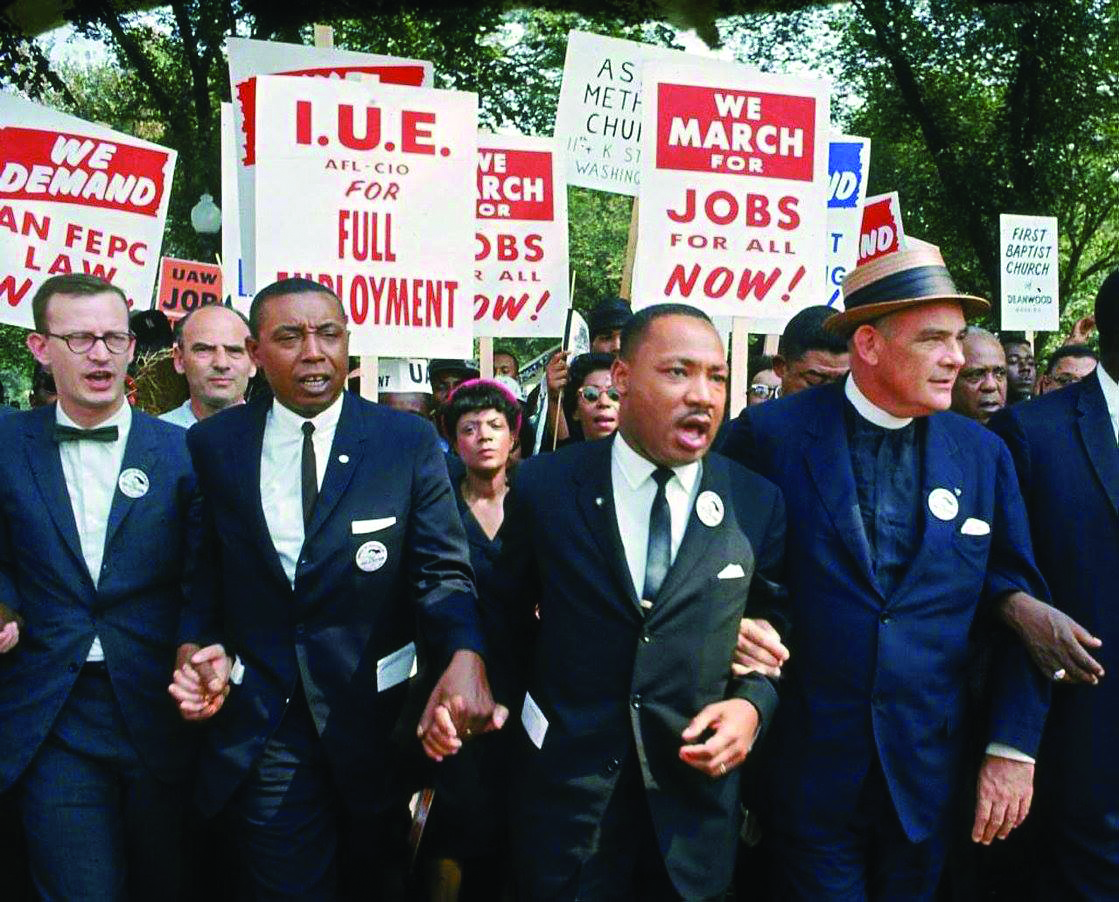
Family Promise CEO Claas Ehlers explores how Martin Luther King Jr. might react to our modern day homelessness crisis.
Helen Keller is an iconic symbol of inspiration in American culture. We studied her in elementary school, and her life story exemplified the triumph of the human spirit over limitations. In many people’s minds, she stands as the paragon of overcoming disability and the inherent capacity in every person.
I remember reading about her identifying the word “water”–this miraculous breakthrough that opened the world up to her. I do not recall being presented with this quote of hers in Mrs. Prince’s 4th grade reading class: “Until the great mass of the people shall be filled with the sense of responsibility for each other’s welfare, social justice can never be attained.”
In fact, while Helen Keller was an inspirational model and an advocate for those with disabilities, she foremost considered herself a warrior for all who were disadvantaged. She spoke and wrote passionately about a full range of issues and stood against oppression, particularly when it was driven by greed and marked by disenfranchisement.
The Rev. Dr. Martin Luther King, Jr. presents us with a similar dynamic. Dr. King is also revered as an American icon, a transformative figure who personifies the civil rights movement. Most people have a passing knowledge of his advocacy on a range of other topics. But the majority of people probably could not identify the focus of his last year of life, nor the reason why he was in Memphis on April 4th, 1968.
The Poor People’s Campaign was the logical next step for Dr. King. The rights of the working class were a natural continuation of his tireless pursuit of the equality promised to all in our nation’s founding. His moral compass directed him to help striking sanitation workers, regardless of their ethnicity.
Probably no untimely death was more traumatic for this country than Dr. King’s. The bullets that stopped him came too late to block the legal advances of civil rights, but they came in time to quash the Poor People’s Campaign. They created the anger, fear, and tumult that allowed reactionary elements to step into the space disordered by the splintering of the progressive forces.
I am not so naïve to think that if Dr. King had lived we would have a just society. But I do believe the Poor People’s Campaign and its fierce call for equality—and equity—would have prevented much of the disparity we have now; a gap that undercuts the legal and societal advance of civil rights.
If he were here today, Dr. King would stand with his inheritors, including our next conference keynote speaker, Rev. Dr. William J. Barber II, to lay bare the fact that we cannot have a nation where people work a full-time job, but must go to a food bank to feed their families. We cannot have a nation where a mom spends four hours a day traveling to and from a minimum wage job while her preschooler stays in an under-resourced day care center. We cannot have a nation where the poorest are subject to the heaping share of discrimination and environmental hazards, while starved of the opportunities for decent education and employment.
Ultimately, though, he might be most shocked by the recent report from the U.S. Department of Education that notes that one in nineteen children under the age of 6 experienced homelessness in 2016.
In virtually all classrooms—like Mrs. Prince’s where I learned about Helen Keller—there are students who experience deprivations and disadvantages. But I don’t think Dr. King could have imagined that half a century after his death, on average a kindergarten class holds at least one child who does not know where he or she will sleep at night.
I recently heard a low-income housing developer state: “You cannot solve one problem without solving all the problems.” He meant that you can’t solve the problem of affordable housing without addressing health, income, addiction, discrimination, lack of opportunity, institutional neglect, and more: housing alone does not pull people out of poverty and out of risk.
I agree, which is not to say that we should not focus on affordable housing: it was one of the cornerstones of the Poor People’s Campaign economic bill of rights. It is to say that, as with Dr. King and with Helen Keller, we must at the same time address the totality of inequality. Until we can ensure that every child has opportunity and resources, it is not enough that every child has a home. Because without all three, a child cannot have the future he or she deserves.

